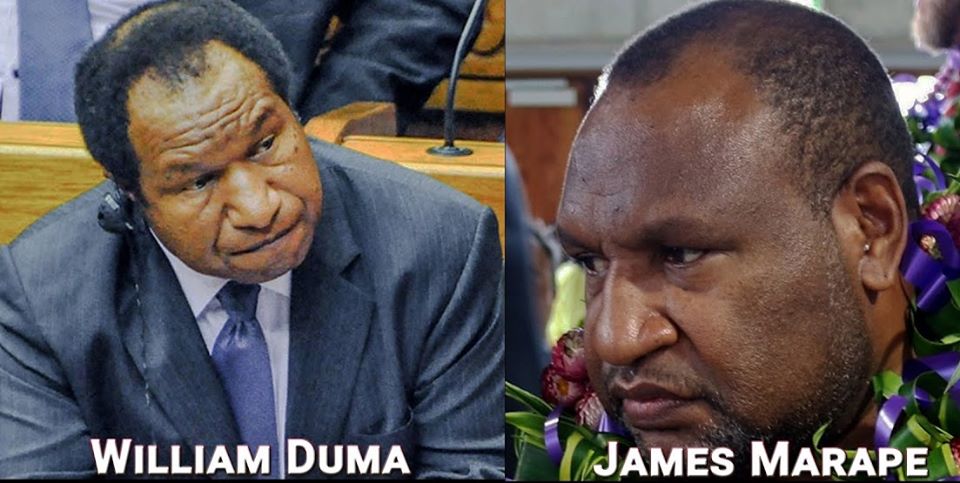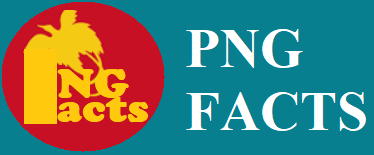 William Duma William Duma A nine-year-old payment in Papua New Guinea is threatening to derail the Australian-listed Horizon Oil, after it repeatedly ignored corruption warnings and paid $US10.3 million ($15.4 million) to an unknown shell company. Lawyers working on the 2011 deal flagged links to PNG’s then petroleum minister William Duma and warned an investigation by the US Department of Justice or Securities Exchange Commission was “likely” if details of the transaction were scrutinised. The payment was made just 10 weeks after Sydney-based Horizon was issued a lucrative development licence in the Pacific nation and followed the settlement of a protracted legal dispute with Mr Duma, who is PNG’s Minister for Commerce and Industry. The payment is revealed in a cache of documents obtained by The Australian Financial Review, which raised concerns about “illicit payments” and “bribes”, while describing the potential transaction as “fruit of the poison tree”. “The bad guys want 30%!!!,” said one lawyer, describing how the new licence would be allocated by PNG authorities. The $US10.3 million payment flared again late last year after Spanish oil giant Repsol sought to sell out of its PNG joint venture with Horizon, prompting questions to Horizon’s current board and management about the 2011 transaction. The revelations come at a sensitive time for the Morrison government, which in November agreed to lend $US300 million to PNG in direct budget support. The loan has raised concerns around graft as PNG has been consistently ranked “highly corrupt” by Transparency International. The leaking of thousands of emails, faxes, letters and legal briefs will heap pressure on Horizon chairman Mike Harding, who also chairs rare earth miner Lynas and engineering firm Downer EDI, to launch an internal investigation into the matter. Any suggestion of wrongdoing would require him to report the matter to the Australian Federal Police. Mr Harding only came on to the Horizon board in 2018, but his chief executive Michael Sheridan is named extensively in the files, with the former CEO Brent Emmett. At the time of the deal, Mr Sheridan was Horizon’s chief financial officer and company secretary. A spokesperson for Horizon declined to comment, as did Mr Emmett separately. Horizon is seeking to commercialise its Western LNG project in the PNG highlands, an already ambitious undertaking which may be jeopardised by any renewed regulatory scrutiny. The company is already battling the Governor of Western Province, Taboi Awi Yoto, who on Friday instructed lawyers to "review" Horizon's licence for its Stanley gas field arguing it was "unconstitutional". Mr Duma said any suggestion he had acted improperly "amounts to political witch-hunting with malicious intent to make me look bad". "As far as I can recall, no such concerns were brought to my attention either formally or informally by my department or the industry. This is the first time I have been made aware of such concerns. It is odd and unusual," he said in an email. Mr Duma said he had always acted on the advice of the Petroleum Advisory Board, as was required by the PNG Oil & Gas Act. Bribing a foreign public official carries a maximum jail sentence of 10 years for individuals in Australia and fines as large as $18 million for a company, although it is notoriously difficult to prosecute. The Australian Federal Police have spent the last two years investigating a $US10.5 million payment made by mining giant Rio Tinto to a middleman in Guinea, after damaging emails about the deal leaked online. Horizon has producing oil and gas fields in China and New Zealand, which helped the company generate an underlying profit of $US37.3 million last financial year. Horizon, which has a market value of $156 million, found itself under pressure in PNG in 2010 when then petroleum minister Duma deemed it to have breached the conditions of its licence and threatened to revoke it. As early as February that year Horizon’s then chief executive, Mr Emmett, flagged the possibility of a payment being required. “I hesitate to put this in an email but it smells like someone is setting the scene for a handout for a problem that doesn’t exist,” he said in an internal email. By November that year Horizon and Mr Duma were locked in an acrimonious court battle, while at the same time the minister had opened a tender process for others to develop the gas field. Horizon, concerned it would lose an asset valued at more than $100 million at the time, wrote to Mr Duma saying it was “open to any suggestion” on how the “current tension might be defused”. That was the trigger for a settlement. Even as the legal action continued in the background negotiations were under way to determine what stake in the new licence Horizon would be granted by the minister. As the minister, Mr Duma signed off on issuing the licence and the emails indicate the then CEO Mr Emmett, and others representing Horizon, met with him on multiple occasions to discuss the matter. At the same time, Mr Sheridan, who was CFO at the time, was in the background briefing Horizon’s lawyers. "Duma accepts that we would wish to continue to pursue the judicial review [legal action] until such time as we have been awarded the PRL [licence] under satisfactory arrangements," Mr Sheridan wrote in an email to his lawyers and Mr Emmett. Tim Glenn, a lawyer at Ashurst [then Blake Dawson] noted the likely dilution of Horizon’s stake and urged the company to push back against the minister. “The bad guys want 30%!!!,” he said in an email stamped confidential. “Tell em they’re dreaming”. By March 2011 the parties had settled their legal case and Horizon’s stake had indeed been reduced to 70 per cent in the new licence, PRL 21. A local oil and gas company, Dabajodi International Energy (now Kina Petroleum), received 20 per cent, while a hastily restructured shell company, Elevala Energy, received the other 10 per cent. In a statement, Ashurst said it only worked on the legal settlement which allowed the new licence to be issued and not the buyout of Elevala's 10 per cent holding. Conducted searches "As part of the settlement process, we conducted searches of Dabajodi International Energy and Elevala Energy ... and these revealed nothing corrupt, illegal or anything in breach of bribery laws," the Ashurst spokesperson said. PNG lawyer Simon Ketan became the sole director and shareholder of Elevala just four days before the licence was granted. Lawyers on the deal, fearing Mr Ketan had “close connections” with government officials, flagged a link with Mr Duma while government sources in Port Moresby told the Financial Review the pair were “associates”. Another source said Mr Duma and Mr Ketan “knew each other well” and were seen having coffee in the capital together in early February. Mr Duma confirmed he knew Mr Ketan and said they worked at the same law firm 15 years ago. "Port Moresby is, compared to Sydney, a very small place with a small legal profession and lawyers would invariably know each other," he said. "I still do not understand the basis for the assertion that Mr Ketan and I are close and that we are politically connected." Files closed Mr Ketan said the deal happened more than seven years ago and the files for a "private commercial deal" were closed. "In any event, I don't recall being made aware of the alleged concerns by anyone, let alone the lawyers working on the deal as alleged," he emailed in response to questions. The shell company Elevala had registered capital of just 2 kina ($0.88) and no apparent ability to raise the millions of dollars required to fund a major oil and gas development. There is no record of Elevala ever housing an operating business, providing grants, dispersing dividends or employing staff. On March 31, 2011, Horizon announced to the ASX its legal troubles in PNG had been settled and said it had regained its interest in the licence known as PRL 5, although the name had changed to PRL 21. The company was vague about its stake being reduced to 70 per cent and did not mention its new partner Elevala Energy or its sole director and shareholder, the lawyer Mr Ketan. At the same time it told the market it intended to farm out half its stake in the gas field to Canadian energy giant Talisman, so each party would have 35 per cent. The plan was for Talisman’s deep pockets to help fund further exploration and development. But with an enterprise value above $US10 billion came additional compliance as the company had operations in the US, where the Securities and Exchange Commission (SEC) and Department of Justice (DOJ) had a long record of aggressively pursuing foreign bribery. So when Talisman’s lawyers learned that Elevala wanted to sell its 10 per cent stake in the gas field just 10 weeks after the licence had been granted, they began asking questions. On the Horizon side, Mr Emmett couched the Elevala deal to the board, including Mr Sheridan, as a move to “pre-empt” other offers and he put the figure of $US10 million on the table. “I recommend this as a good opportunity,” Mr Emmett said in an email to the board, which was chaired at the time by Fraser Ainsworth. Mr Ainsworth did not respond to emailed questions. There is no indication any other parties had made an offer for the Elevala stake and Mr Emmett would later write about getting “the right result with the board”. Pressure on Talisman For Talisman, which had been lined up to buy half the Elevala stake for around $US5 million, things were more complicated, prompting a flurry of emails from its lawyers. At the same time, Horizon’s Mr Emmett was pressuring Talisman to move more quickly. “We’ve had plenty of time to do our due diligence on what is a straight asset acquisition in which we already have an interest. I don’t want to risk spooking the horses,” he wrote. Talisman had initially signed a draft deed to participate in the buy-out but began to have second thoughts. It then set about unwinding its commitment. One Talisman lawyer, Amelia Jalleh, noted Mr Ketan had been charged with perjury in 2003 – the charges were later dropped. She also flagged a news clipping indicating a link between Mr Ketan and Mr Duma amid allegations of tribal landholders being defrauded of government compensation. “Is this sufficient, for FCPA [Foreign Corrupt Practices Act] purposes for us not to proceed with acquiring an interest in PRL 21 from Elevala?” she wrote. Mr Duma denied any involvement. "Mr Ketan and I were never involved in an alleged scam to defraud landowners. That is absolutely false and defamatory," Mr Duma said in an email. Other records show Mr Ketan and Mr Duma were both from the Western Highlands Province and grew up in nearby villages. Mr Duma confirmed this but noted, "we do not speak the same language". Talisman’s senior legal counsel, Patrick M. Colwell, noted there were a series of “red flags” around the transaction, including Mr Ketan being “a lawyer with what appears to be close connections to government officials”. Another red flag was that a “quick flip … for $US10 million” would not appear to meet the minister’s desire for local companies to be involved in the sector. Mr Colwell said it could be assumed “there was some corrupt behaviour on the part of Elevala in the acquisition of their interest in PRL 21”. That made it “fruit of the poison tree”, he said, while he flagged “the possibility” of payments from “Elevala back to some government officials from the sale price to be paid by Talisman and Horizon". Further questions He then sought further advice from Washington lawyer Douglas N. Greenburg, a partner with Latham & Watkins. “If the authorities in the SEC and/or DOJ were to learn of Talisman’s involvement, what is the likelihood that they would initiate an investigation?” he asked. Mr Greenburg, a former SEC lawyer, raised a further series of questions about the acquisition in his reply email while concluding “the legitimate role of Elevala is not clear”. He said if Talisman wished to proceed with the acquisition, it must have a “good faith belief, after reasonable diligence, that Elevala had not paid, and will not pay bribes”. “The question will be, can Talisman get comfortable that this is legitimate?” Mr Greenburg asked. Talisman pulls out The documents don’t answer that question but Talisman did not proceed with the acquisition. In response, Mr Duma said; "It seems to me that Talisman's in-house lawyer formed his views based not upon facts, but assumptions, more likely out of personal animosity towards me and with malice." Talisman’s withdrawal left Horizon to buy Elevala’s entire 10 per cent stake for $US10.3 million, even though the files show Mr Greenburg’s concerns around corruption were forwarded to Mr Emmett. An email trail shows Mr Emmett was forwarded all the questions raised by Talisman's lawyers and asked to provide more detailed answers. In its statement to the ASX about the Elevala acquisition, Horizon did not disclose how much it paid for the 10 per cent stake. Horizon’s 2011 accounts show acquisition costs of $US12.073 million for the year ended June 30. On the issue of any SEC or DOJ investigation, the Washington lawyer Mr Greenburg was clear. “The bottom line is that if the DOJ or SEC get wind of an allegation from any source that Elevala was a vehicle for bribes or paid bribes, there will likely be an investigation,” he said. And he made it clear any Horizon buyout of Elevala could still be an issue for Talisman. “If Elevala turns out to be a problem and Horizon buys out their interest there can be questions about what Talisman knew about that,” Mr Greenburg said. Talisman was taken over by Spanish giant Repsol in 2015 in a deal which valued the company at more than $US10 billion. Repsol is in the process of selling its interests in the PNG gas fields. Repsol did not respond to emailed questions. Mr Ketan resigned as a director of Elevala in August. The company has since been renamed Rubicon Enterprises. Mr Duma has been a key player in PNG politics over the years, despite regular brushes with controversy. In 2017 he was suspended from cabinet over his role in a corruption scandal and efforts to move a PNG naval base 10 kilometres inland. Source : Financial Review ...read more here >> https://www.afr.com/companies/energy/asx-oil-firm-mired-in-15m-png-bribery-scandal-20200207-p53ypj Next : PNG PM MARAPE URGES MULTI-NATIONALS TO ALLOW GAS PROJECT TO PROCEED Comments are closed.
|
Papua New Guinea Business NewsWe cover all Papua New Guinea and International business news on this page. Please subscribe to our latest business on the subscribe form available on this page. |
- Home
- News
- Business News
- Economy News
- Sports News
- International News
- Corruption News
- Mining Watch
- Jobs
- Education News
- Scholarships
- Health News
- Bzzmart Online Shopping Platform
- Pacific
- Used Cars
- Buy or Rent Homes
-
Travel
- City of Port Moresby
- Adventure and Destination
- Hotels & Lodges in PNG
- Hotels & Lodges in Mendi, Southern Highlands Province
- Hotels & Lodges in Lorengau, Manus Province
- Hotels in Oro Province
- Hotels and Lodges in ESP
- Hotels & Lodges in Kavieng
- Hotels and lodges in Kimbe
- PNG Photo Gallery
- Map of Papua New Guinea
- PNG
-
Computer Tech
- Tech Help
-
Top Weebly designed Websites
>
- HOW TO RECOVER FILES WITH SHORT CUTS OR HIDDEN IN FLASH DRIVE OR EXTERNAL HARD DRIVE
- How to remove Stubborn Computer Virus
- Creating Login or Sign in Membership page in Weebly sites
- How to auto insert Table of Content in Word
- Top Weebly Website Examples and Portfolio
- Weebly Membership Sign in feature available
- Send Free SMS in PNG
- Radio Stations
- Television stations >
- PNG Information Directory
- Computer Resources
- Classifieds
- About us
- Contact Us
- Competition
- Advertisement
- Privacy Policy
- SP PNG Hunters News
- Weebly Forums
- National Football Stadium, Port Moresby
- Work Permits and VISAs in PNG : Guide
- Seasonal Workers Program for PNG
- List Your Business on PNGFacts.com
- Twodot Business Solutions
- Become a Sponsor
- Mt Giluwe Lodge
- Papua New Guinea Defence Force
- Political parties in PNG
- NID PNG
- Employment VISA in PNG
- Business VISA
- Visitor VISA
- Police Clearance in Solomon Islands
- PNG Electoral Commission
- PNG Election Results
|
Search Papua New Guinea Database >>
|
|
|
|
|
Home: PNG News :Travel : Government System: Computer Tech : About us: Contact : Disclaimer : Sitemap : Login Copyright & Disclaimer © 2012 -2023 PNG Facts: All rights reserved:
|
Website developed by Kilikalo Technology & Business Solutions Ltd
About |
Terms |
|


 RSS Feed
RSS Feed